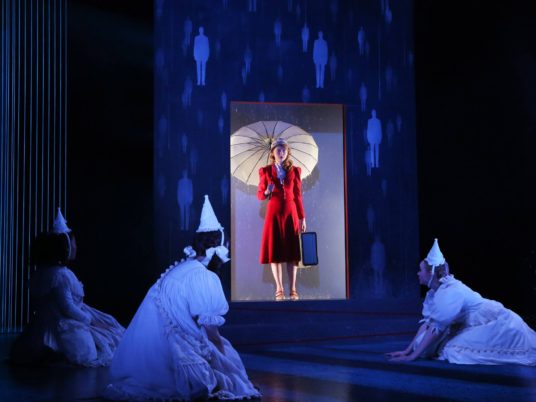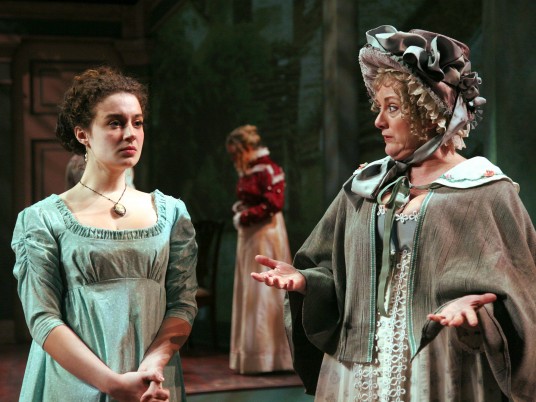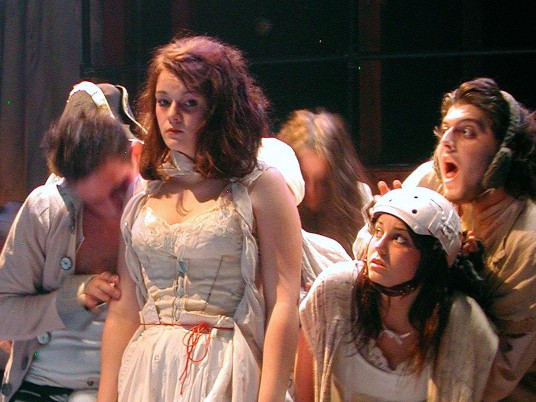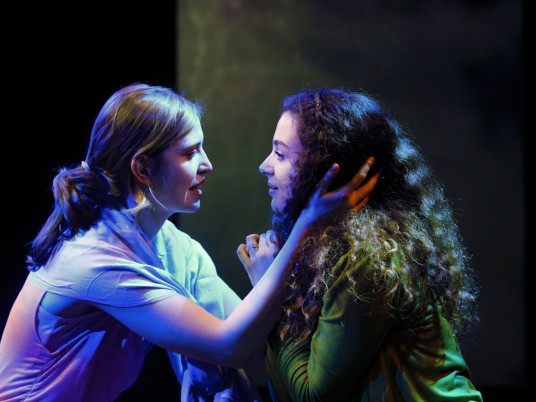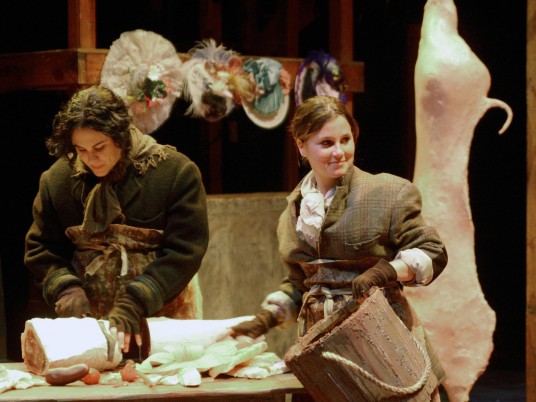The Skin of Our Teeth
A wild and exotic epic play that is at once futuristic and prehistoric. From the Ice Age to New Jersey, from Moses to Homer, this Pulitzer Prize winning play is a hilarious romp through the human experience that reveals how history constantly repeats itself.
Scenic Designer, Isaac Ramsey
Costume Designer, Katarina Urosevic
Lighting Designer, Jen Rock
Sound Designer, Wilson Tennerman
Puppetry, Rebekah Eyre
Film, Fergus J. Walsh
Photographer, Gerry Goodstein
Connecticut Repertory Theatre
I am not interested in the ephemeral—such subjects as the adulteries of dentists. I am interested in those things that repeat and repeat and repeat in the lives of millions. —Thornton Wilder 1897-1975
“After the success of Our Town in 1937, Thornton Wilder continued his quest for a vital, theatrical form of playwriting that would break down audiences’ expectations and the Fourth Wall. Influenced by his experience of the Blitz in London and the bombing of Pearl Harbor in 1941, a new play began to take shape. It was a comedy hurtling its characters through the Ice Age, the Great Flood and post apocalyptic war – torn suburbia. It was the story of an ordinary hero, George Antrobus (Greek for “human”) and his struggle to “build new worlds” in the face of epic disaster.
The Skin of Our Teeth premiered at The Schubert Theatre in New Haven on October 15 1942 directed by a young Elia Kazan and starring the legendary Tallulah Bankhead. On the first night at least fifteen people walked out and mixed reviews followed. Nonetheless, the show transferred to Broadway. Within days Wilder was off to Algeria to fight the fascists, leaving Tallulah Bankhead’s backstage antics and an accusation of plagiarism behind him. By 1943, The Skin of Our Teeth had won Wilder his third Pulitzer Prize and the play was sealed as a work of genius.
The Skin of Our Teeth overflows with Biblical, historical, mythological, philosophical and poetic references. There is indeed a clear homage to Joyce’s Finnegan’s Wake. The spirit of Brecht’s Mother Courage and World War II seeps through the deep structure, and throughout the play we feel the irrepressible zest for life, energy and intelligence that characterized Wilder, the man. A teacher, author, playwright, raconteur and actor, Thornton Wilder was also regarded as private and enigmatic. The Skin of Our Teeth certainly reveals a man with a sensitive awareness of human psychology in all its wild emotional complexity.
“War and human disasters come from the ugly unresolved things in us… war is in all of us and is a very natural phenomenon indeed,” he once said. As the flawed characters strive to be “perfect,” we explore their battles with the outside world. We also explore their struggles with the chaos within. “War’s a pleasure compared to what faces us now,” Antrobus says to his son. Indeed all the characters need to understand the patterns of their anger, fear, paranoia and depravity. They need to control their passions before they can find god and begin again. As George Antrobus says (paraphrasing Plato) “How can you make a world for people to live in unless you’ve first put order in yourself?” —Helene Kvale, Director

